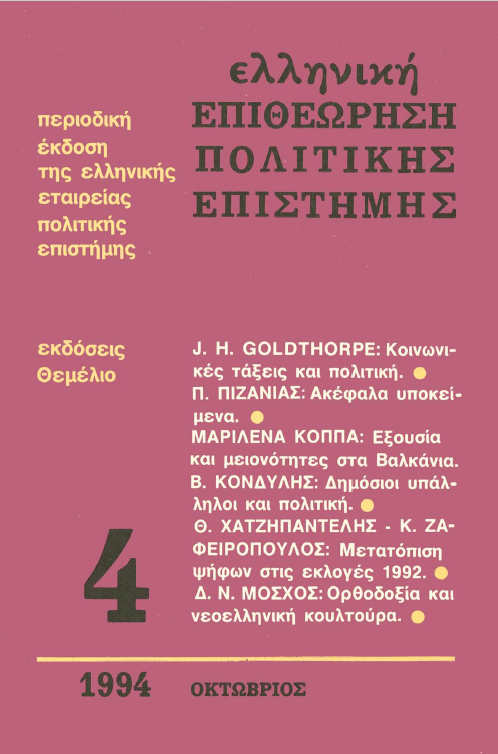Class and politics in advanced industrial societies

Abstract
The article begins with a brief discussion of analyses which argue (a) that class cleavages and contlict cannot be considered as an «engine of history» in the late twentieth century and (b) that class is irrelevant in everyday life and, especially, to electoral behaviour and politics in liberal democracies.
The author takes issue with various adherents to the «decline of class politics» thesis and argues that the major problems in these analyses stem from their inadequate conceptualization of class and from their crude treatment of political parties. These conceptual inadequancies result from (a) the dichotomous conceptualization of class, i.e., working class versus non-working class and (b) a lop-sided emphasis and focus on parties of the left rather than of the whole ideological spectrum. In turn, these problems make it difficult to identify organizational changes at the party level and to assess their influence on voting patterns related to class.
After carefully examining a number of empirical country studies (France, Ireland, the Netherlands, Sweden, the United Kingdom, and the United States), the author proceeds convincingly to challenge these analyses on the basis of their theoretical and/or technical assumptions. The article concludes that class remains an important factor in the operation of democratic politics. while stressing that it is not, and never has been, the soie factor determining the social and political behaviour of voters.
Article Details
- How to Cite
-
Goldthorpe, J. H. (2017). Class and politics in advanced industrial societies. Greek Political Science Review, 4(2), 5–24. https://doi.org/10.12681/hpsa.15294
- Issue
- Vol. 4 (1994)
- Section
- Articles

This work is licensed under a Creative Commons Attribution-NonCommercial-ShareAlike 4.0 International License.
Authors who publish with this journal agree to the following terms:
Authors retain copyright and grant the journal right of first publication with the work simultaneously licensed under a Creative Commons Attribution licence that allows others to share the work with an acknowledgement of the work's authorship and initial publication in this journal.
Authors are able to enter into separate, additional contractual arrangements for the non-exclusive distribution of the journal's published version of the work (e.g. post it to an institutional repository or publish it in a book), with an acknowledgement of its initial publication in this journal.
Authors are permitted and encouraged to post their work online (preferably in institutional repositories or on their website) prior to and during the submission process, as it can lead to productive exchanges, as well as earlier and greater citation of published work (See The Effect of Open Access).


